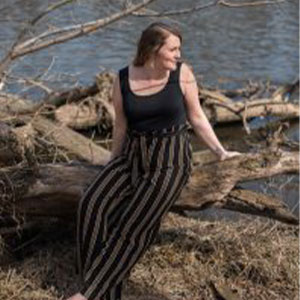Last week I wrote about my own journey during COVID-19 as an over functioner in my imperfect parenting series. If you missed it check it out. It’s good stuff. This week what I’d like to expand on how anger shows up as I’ve written a lot about anxiety.
Anger is no stranger to me. It’s also the emotion that I experience that I feel a ton of shame over. In the moments that I’m angry I feel pretty much like the scum of the earth. I go into a cycle of feeling like a horrible person and mom. Over the past year with two young children I’ve had a good amount of these shame spirals.
Dealing with anger
Dealing with anger is personally very hard for me; I’ve had a long journey with anger. As a survivor of domestic violence I see an outburst of anger as a warning sign. I either feel like a person around me is becoming a threat or am fearful I will become a threat. In my early years and through young adulthood I used anger to protect myself (get bigger so I wouldn’t be hit) and to express the internal hurt I was feeling. Through my 20s as I stepped away from violence I healed my wounds and told myself, “never again.” In my 30s a new form of anger has come into my life as a wife and mama of young children. That is where shame popped up big time for me. While I have never hurt my children physically and never will I have experienced anger with my children and it kills me. I tell you this because I had forgotten until recently that anger tells a story that needs to be seen.
I know as a practitioner that anger is a secondary emotion. This means that anger is present when there is something else going on emotionally. Tara Brach did a recent podcast on anger and she reminded me of this. While in my head I knew this to be true for some reason it didn’t stop my own shame cycle as anger popped up for me these last three months at home. It wasn’t until a fight with my own dad in Ohio that I realized why I hold anger and what to do with it.
One afternoon he took our boys to a spot I couldn’t see them. I asked next time he gave me a heads up. He blew up, feeling I didn’t trust him and I got about as big as I could verbally until he walked away. It hurt like no other. It was the first explosion in 15 years I’d seen. But this time I did something different. I walked away and held myself in my heart for about 20 minutes. This looked like breathing through my belly and washing light into my body with visualization. Then I walked to my dad and asked him what hurt. That’s when I found out my dad was having an awful time adjusting to us because he too had been alone for three months and was over functioning prior to our visit. Through this interaction I was able to honor my own trauma story.
I had realized as a trauma survivor that when anyone (including my kids) screams or hits I felt like I needed anger to make myself big and protect myself. While it doesn’t seem logical that a screaming, hitting toddler would trigger me, my limbic system doesn’t know the difference. In seeing my story clearly I have melted the shame and know personally self care (walking away) is absolutely necessary for me when I’m overwhelmed. It feels silly to say I can’t see the difference between Henry kicking me hard and being physically beaten. But feeling silly and shameful does nothing to serve my soul.
My story may be your story
This is the story of anger. It holds on to each of us until we can find the core. What is your story with anger? When do you explode? What do you say to yourself? I believe wholeheartedly that anger is a messenger. Only when you listen to the message and provide yourself radical love will anger melt away. From the exhausted parent going about it in a way that brings shame, to a nation crying for change, anger is speaking to us all.
So what can you do? What can we all do? I don’t think everyone will have the same privilege I had to confront my dad and my own anger together. While it hurt immensely the night it was incredibly healing. I do think each and every person can ask their anger, “Why are you here? What do you need to say to me?” This can look like journaling, walking in silence, and reading wonderful books (try Harriet Lerner “The Dance of Anger”). Most important is to get curious while you are compassionate with yourself. Through your curiosity and kindness anger will speak and then melt away. When you learn the lesson anger leaves.
My darling ones, we can all fly free.
Xoxo,
Jessie


